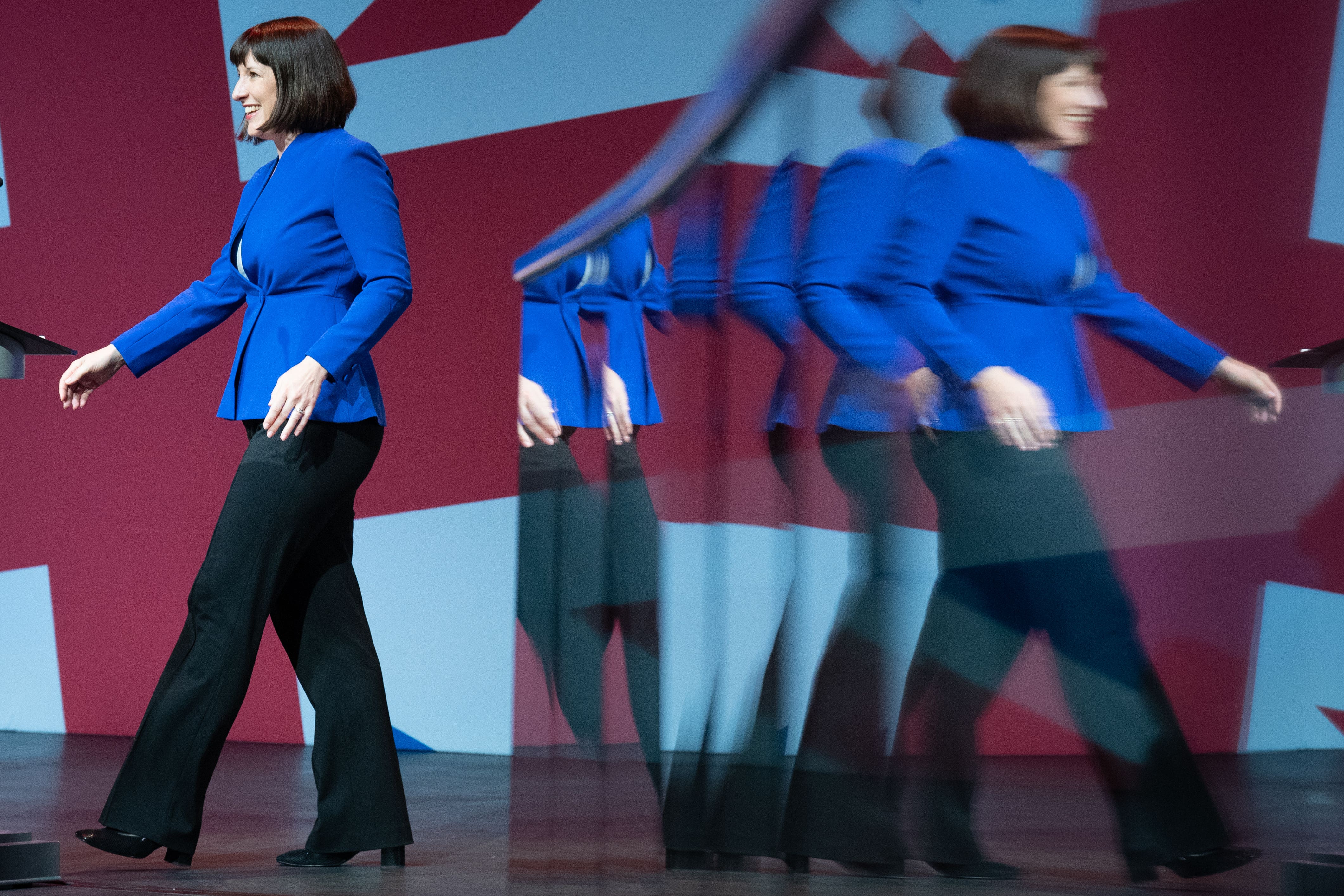Whoops! There goes Rachel Reeves’s spotless reputation
The shadow chancellor hadn’t put a foot wrong on her remarkable rise to the top – until she admitted she might have plagiarised some passages in her new book. So will the slip up come back to haunt her, asks John Rentoul


There is nothing new under the sun, but sometimes you can put the words in a different order. And sometimes, if you don’t put the words in a different order, you can get into trouble for copying.
Rachel Reeves, the shadow chancellor, the rising star of the imminent Labour government, fell like a meteor when the Financial Times discovered several examples of plagiarism in her book The Women Who Made Modern Economics, which was published on Wednesday.
To her credit, she owned up promptly, took responsibility, and refused to blame her staff. The story at least offered a partial answer to a question asked by a friend of mine: “How do shadow cabinet members and their staff find the time to write books?” The answer is that they don’t, and sometimes corners are cut.
So perhaps the question we should ask is this: “Why do shadow cabinet ministers feel that they have to write books?”
Wes Streeting, the shadow health secretary, published a memoir of his East End life last year. And Lisa Nandy, the international development secretary, published All In: How We Build a Country that Works, a “manifesto for a better Britain”. Three years ago, Ed Miliband, the shadow energy secretary, published Go Big, his plan for a green revolution.
Even Keir Starmer was going to publish a book of his great thoughts, until he had the great thought of not doing so. Therein may lie a clue as to motive. Starmer is already leader of the party. His colleagues are not, yet – and there may be an assumption, possibly borrowed from US politics, that anyone who aspires to the top job must have published a book.
I thought the launch of Streeting’s book last summer, at the comprehensive school he had attended in Westminster, was a lot like the launch of a leadership campaign. All the Blairite aristocracy were there (including me), and his speech was very much along the lines of Bill Clinton’s “I come from a town called Hope”.
Then I thought that Reeves’s book launch on Wednesday seemed a bit like the opening rally of her leadership campaign. Eleven members of the shadow cabinet were there (including Streeting), and her biographical themes were well advertised. She used to work at the Bank of England, she plays chess, and she will be the first female chancellor of the Exchequer if Claire Coutinho doesn’t get there first.
Unfortunately, Soumaya Keynes, a great-great-niece of John Maynard Keynes and a columnist at the Financial Times, had, along with four of her colleagues, already that night pressed “send” on the story about the book having lifted paragraphs from other sources without attribution.
Is the story damaging to Reeves? It is a bit. It will come up again and again. It will always be thrown at her in partisan debate, something in which she is a streetfighter, so she will give as good as she gets. And I think she is still the “under the bus” candidate. If Starmer should become “permanently unavailable”, in the decorous words of the party constitution, I think she would become leader.
Remember what happened to Joe Biden, whose 1988 run for the presidency was derailed when it emerged that he had copied Neil Kinnock’s “Why am I the first Kinnock in a thousand generations to be able to get to university” speech. The plagiarism was spotted by staff working on Michael Dukakis’s rival campaign, and VHS tapes were supplied to journalists. Dukakis, who went on to win the Democratic nomination, fired John Sasso, his campaign manager, over it. You might have thought it perfectly legitimate for a rival campaign to point out an opponent’s plagiarism, but the way in which he did it seemed underhand.
Whatever the ethics of the Dukakis campaign, the revelation was the end of Biden’s bid for the nomination that year. There were other reports that Biden had relied too heavily on a single source for a paper in his first year at law school, but it was the Kinnock-copying, in a presidential debate and a TV interview, that did for him.
Incidentally, I have always cavilled at the rhetorical extravagance of that “thousand generations” phrase. Universities were only invented 50 generations ago; a thousand generations takes us back to the domestication of dogs in the Stone Age. But that is hardly the point.
The point is that there was a huge fuss about Biden’s plagiarism at the time. But it didn’t end his career, and it didn’t stop him from becoming president eventually.






Join our commenting forum
Join thought-provoking conversations, follow other Independent readers and see their replies
Comments